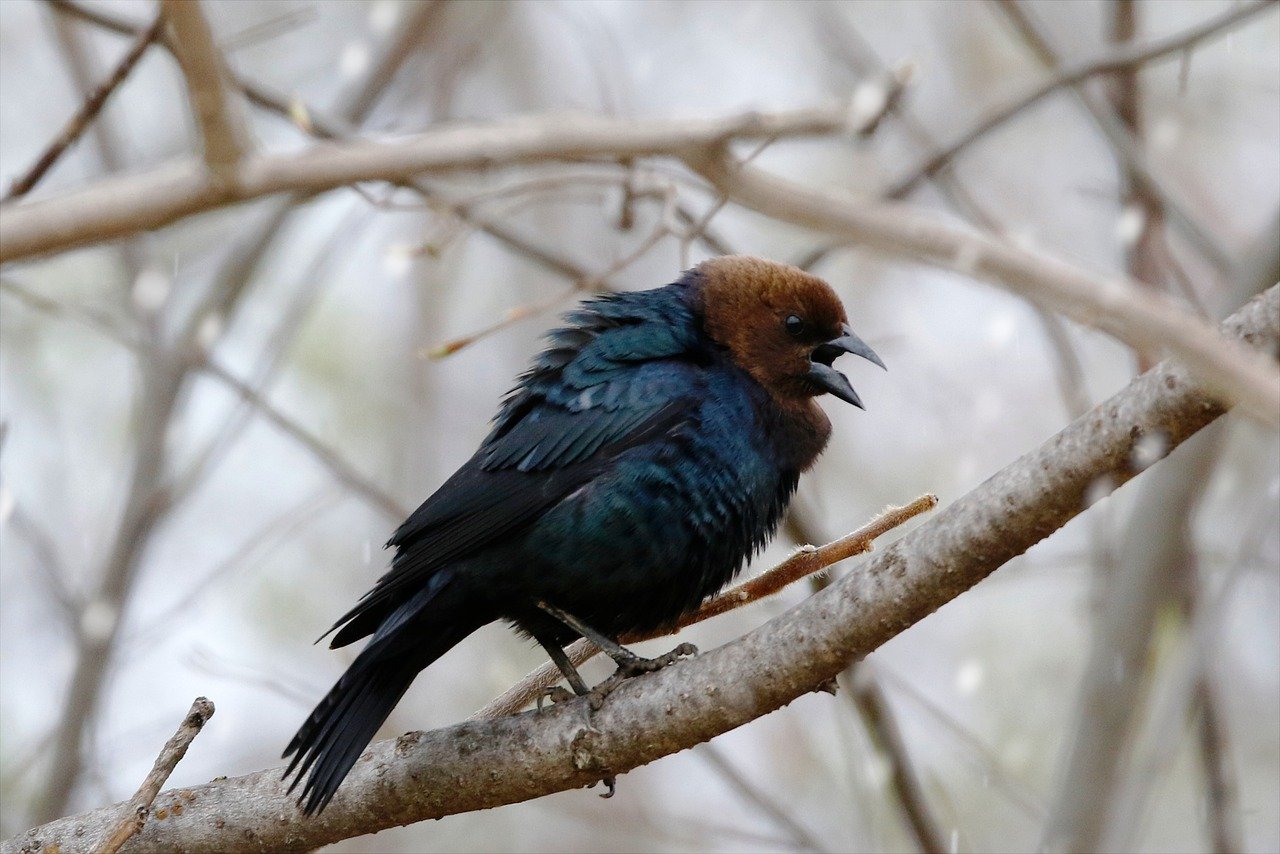My grandmother and I spent the day plucking sparrows out of the air with our bare hands and skipping them across the pond like stones. She was better at catching them than I was. “What’s your secret?” I asked. “It’s simple,” she said as her hand snapped shut around the little bird’s quivering body. “You have to make your fingers look like the wind.” But I was all thumbs, always had been, and my thick, knobby mitts fell about the birds like pots and pans falling from a high cabinet. I could feel their hearts burst as I enveloped them like a landslide, and their little lifeless bodies tumbled and cartwheeled gracelessly across the surface of the water no matter how precisely I flicked my wrist. “It takes practice,” she said, as her latest bird sailed along easily as if the pond were made of glass, shedding its feathers as the surface tension ripped the downy stalks from their roots.
By nightfall, the pond was once again choked with a blanket of feathers. My grandmother was satisfied that no moonlight could penetrate it and that nothing could emerge from it. My hands were ripped raw, bloodied from the claws and the beaks and my ears were full of echoes, a cacophony of ragged, smothered birdsong mixed with the sickening crack of hollow bones. She peeled a long strip of moss from a moldering cypress and stuffed it in my mouth to stifle my sloppy keening. “We need something subtler tomorrow,” she said, noting the iridescent shine of the high, waxing, crescent moon through the moist air. “Grackles, I think.” As she spoke, a worm shook itself loose from the wet clod in my mouth and tied itself around my tongue. We walked back through the woods in silence, lowering our eyes as we passed the jeering boughs of the emptied trees.
That night, I dreamt about the cowbird again. It perched on the tip of my nose and laid its eggs in my mouth as I lay paralyzed across a long, flat rock. “You’ll get it someday,” my grandmother said, trying to quell my tears. “You’ll learn.” One morning, when I was little, I’d found her asleep in her bed clutching a strange-looking bird, all odd angles and shimmer like nothing I’d ever seen. She said she’d plucked it from her dreams. I waited till she wasn’t looking and dashed its brains out with the iron kettle. I was afraid of what it might have brought with it from within her. We didn’t need any more trouble. We had our hands full with the pond, and with the moon.
We started in on the grackles just before dawn, but right away it was clear something had gone wrong. The sun rose but the moon remained, defiant in its sphere. As we skimmed the birds, their feathers clumped and clotted and sank like lead. “I must have read it wrong,” my grandmother said, pinching at the air with her fingers in disbelief. “I must’ve made a mistake.”
At midday the sky was full of angry magpies bearing shards of glass and heavy, polished stones that glinted in the twin light. Blood coursed from the webbing between my fingers and pooled in deep, black bruises under my skin. In my fury and frustration I forgot myself and collapsed my hands around the vulgar birds like a vice until they atomized into a smoky mist. We were falling behind; by that point, you could see the tips of my mother’s longest fingers sticking up out of the water—by the afternoon, her whole shriveled hand down to the wrist. She began to wave, slowly, and the pond followed suit. Back and forth, the water ebbed and flowed, each oscillation drawing it closer to our feet.
“The cowbird,” my grandmother said.
From her tinderbox she produced a small, gleaming ember and touched it to my nose. I dissolved into unconsciousness, where the cowbird loomed over me. I could tell that it intended to claw out my eyes and lay its eggs in their empty orbits. I saw myself reflected in its black gaze, and realized I was as much within it as without. I gave up on my frozen hands and with my eyes seized its spirit rather than its body. When I awoke, I felt its soft down twitching between my palms.
The bird left my hands and perched atop my mother’s. With its sharp beak, it began to eagerly disarticulate her slim, slimy fingers, one by one. The water rolled back upon itself and from the depths rose our tyranny of feathers—sparrow, grackle, wrens, starling, and more—all those years of feathers rising again to the surface, blanketing the water, blotting out the moon. What was left of my mother’s hand coiled into a stubby fist and sank beneath the surface. The cowbird went with it.
I fell to my knees at the edge of the water, and turned to look back at my grandmother, whose face vibrated with love and pride. Her hand reached out, tenderly, to lift me up out of the shallows and lead me away from the pond. But in her eyes I thought I saw a darker glimmer, a seed of premonition that perhaps she had yet to register. Deep in the abyss of her pupils I saw a reflection of the future; a hint that one day she may decide instead to push me in.
